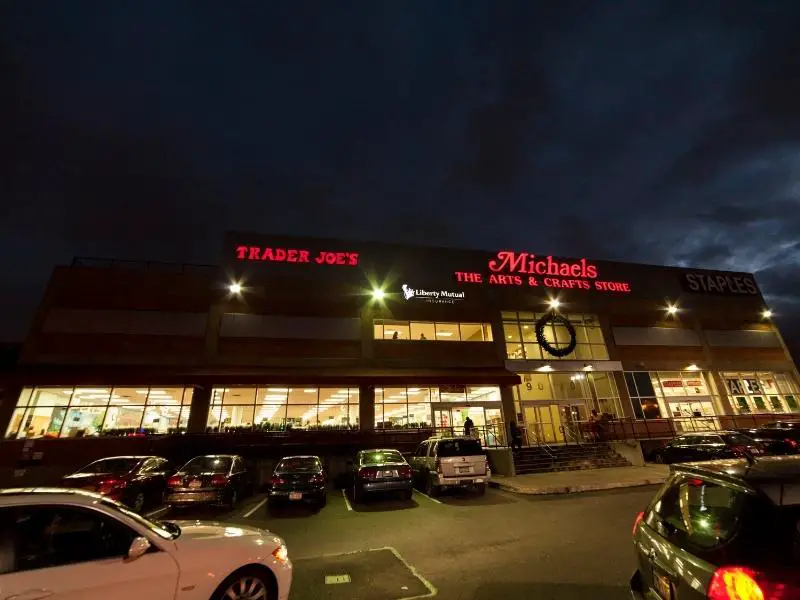In 2014, Albertsons acquired Safeway, which it had acquired from Cerberus Capital Management in 2006.
Marion Barton Skaggs, the founder of Safeway, was raised Baptist.
Is Safeway owned by Mormon Church?
The Mormon Church does not own Safeway. In 2014, Albertsons purchased Safeway, which it had acquired from Cerberus Capital Management in 2006.
Marion Barton Skaggs, the man of Safeway, was brought up as a Baptist. A majority of the Mormon Church’s investments are in the areas of media, finance, real estate, and agriculture.
No grocery store is owned by the Church. Furthermore, churches cannot directly own corporations.
A church can have a holding or Management Company to conduct business, but such investments would be subject to taxation.
The Church’s investments do not include Safeway or any portion of it.
Who owns the Safeway brand?
A deal for $9.4 billion has been struck between Albertsons’ owner and Safeway Inc., the nation’s second-largest supermarket operator.
Who is Albertsons owned by?
The Mormon Church does not own Albertsons. Neither the Church of Jesus Christ of Latter-day Saints nor its shareholders own any grocery stores.
Cerberus Capital Management, a private equity business, owns Albertsons.
Is Safeway a private company?
In 1990, Safeway re-emerged as an independent, publicly-traded corporation after a period of downsizing and restructuring.
Safeway has more than 1,650 stores in the United States and Canada, including Vons in the West, Tom Thumb in Texas, and Carrs in Alaska, as of the beginning of the 21st century.

Who owns Trader Joe’s?
The Aldi brand is adored around the world for its low costs, which have made it a household name.
While Aldi Nord, the parent company for Trader Joe’s in this nation, and Aldi stores in countries like France and Denmark, has avoided the public eye for the last half-century or so, a family conflict about frugality is suddenly dragging them into it.
It’s owned by Aldi Nord, the same business that runs Trader Joe’s and Aldi stores in the United States and other English-speaking countries.
Two children were raised by the Albrecht brothers who operated that branch, and the surviving one’s widow is embroiled in a power struggle with the other’s widow over the company and its finances.
Who owns Safeway in Canada?
For more than a century, Safeway has been a fixture in Western Canada. Sobeys Inc. purchased the assets of Canada Safeway Limited in 2013.
Sobeys Inc. is the only owner and operator of Safeway’s Canadian assets. Safeway has been operating in Western Canada for nearly 85 years. From Vancouver, British Columbia, to Thunder Bay, Ontario, Safeway now has 183 locations.
For more than a century, Safeway has been a fixture in Western Canada. Sobeys Inc. purchased the assets of Canada Safeway Limited in 2013. Sobeys Inc. owns and operates the Canadian assets of Safeway. Jason Potter is the president of Sobeys Inc.
Western Canada. Over 28,000 Canadians are employed at Safeway. Safeway’s headquarters are located in Calgary, Alberta, with regional offices in Vancouver, Edmonton, and Winnipeg, as well as in the United States.
What grocery stores are owned by Empire?
An empire of supermarkets, food distribution, and real estate assets are made up of Empire Company Limited (Empire).
There are more than 1,500 grocery and drug stores in Canada under various names such as Sobeys, Safeway, Fresh Co., and IGA, as well as more than 350 retail fuel sites held by the company’s wholly-owned subsidiary Sobeys.
For its own stores and other retailers, the company also distributes food.
Crombie REIT, a real estate investment trust, and Genstar, a residential property developer, are two of Empire’s commercial real estate investments.
It is estimated that roughly 127,000 individuals work for Empire or one of its many affiliated companies.
Who owns Ralph’s?
Located in Southern California, Ralphs is an American grocery store business.
It is the oldest grocery store chain west of the Mississippi and the largest subsidiary of Cincinnati-based Kroger.
In California, Kroger also has Food 4 Less and Foods Co. outlets. Among Kroger Co.’s retail grocery stores are the following brands:
Kroger, Ralphs, Dillons, Smith’s, King Soopers, Fry’s, QFC, City Market, Owen’s, Jay C, Pay Less, Baker’s, Gerbes, Harris Teeter, Pick ‘n Save, Metro Market, Mariano’s are some of the major supermarkets in the United States.
Does Safeway own Sobeys?
For more than a century, Safeway has been a fixture in Western Canada. Sobeys Inc. purchased the assets of Canada Safeway Limited in 2013.
Sobeys Inc. is the only owner and operator of Safeway’s Canadian assets.
Who owns Superstore in Canada?
Loblaw Companies, Canada’s largest food retailer, owns the Real Canadian Superstore franchise. Many people refer to it as RCSS or just Superstore.
Canada’s largest supermarket chain, Loblaw, has been using this banner since the late 1970s and early 1980s when it first appeared in Western Canada.
This was reflected in the Loblaw marketing, which utilized a different logo for advertising all of these banners at various sites in Ontario for a period of time, but this has since been discontinued.
Although certain locations may still display alternative signs, the firm has subsequently reverted to marketing the whole chain as Real Canadian Superstore.
About three-quarters of each store is devoted to groceries, with the rest divided between electronics, housewares, and apparel.
President’s Choice, Life at Home, and Joe Fresh are just a few of Loblaw’s private label brands that fall into the second and third categories.
Who owns Longos?
Longo’s entire enterprise value is $700 million, and Empire has acquired 51 percent of Longo’s issued and outstanding shares.
The parent company of Sobeys Inc., Empire Company Ltd., has completed the acquisition of a majority investment in Longo’s and announced new FreshCo locations.
Due to its non-public nature, Longo’s can place long-term wagers with confidence. At the store level, the company has a long history of inventing.
What company owns no-frills?
Loblaw is the parent company of the No Frills franchisees. Customers are expected to pack their own groceries in exchange for lower prices at this type of store.

